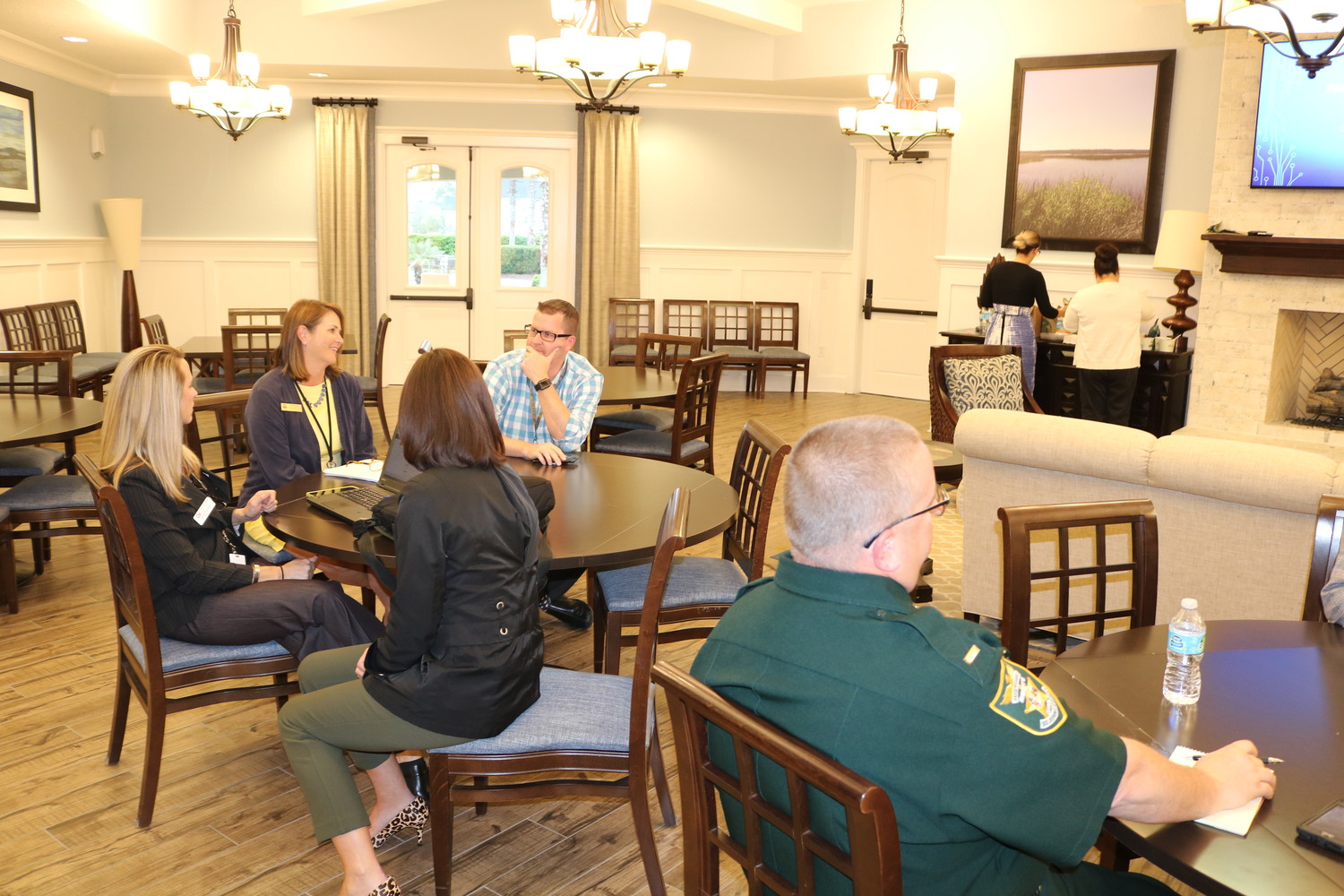PACT Prevention Coalition kicks off cyber and social media safety initiative
In the wake of the Feb. 14 shooting at Marjory Stoneman Douglas High School in Parkland, questions have been raised regarding mental illness, access to firearms and a cultural desensitization to violence. With concern for the safety of students fresh on their minds, members of PACT Prevention Coalition met last Tuesday, Feb. 27, to discuss the influences and risks mobile devices and the internet impose on today’s youth.
“PACT is kicking off a rewrite for cyber and social media safety for schools and law enforcement to help change the influences and exposures our kids are interacting with online and through social media platforms,” PACT Prevention Coalition Chair Denver Cook said. “As what our kids are exposed to and what they are learning in school can affect behaviors in both negative and positive ways, we are looking to rewrite the book for students, parents, educators and community on how we are teaching responsibility and values as they relate to this increasingly challenging area.”
PACT is a nonprofit dedicated to positively impacting the critical lifestyle choices of St. Johns County’s youth, with significant focus on the prevention of underage substance abuse. The meeting, held at the residents’ clubhouse in Nocatee’s Coastal Oaks neighborhood, was attended by a handful of coalition members, as well as supporters like Ocean Palms Elementary School Principal Tiffany Cantwell and Lt. Mike Strausbaugh of the St. Johns County Sheriff’s Office. Among the topics discussed were the difficulties of limiting children’s exposure to the various dangers of the internet and social media – including cyberbullying, unwanted sexual solicitations and privacy concerns – when the internet has become such a staple of 21st century life.
“(Boundary) conversations have to start early,” Strausbaugh said. “What we see a lot in law enforcement is that those conversations aren’t had early on with children, and then those children grow into teenagers, without a lot of rules and things in place that need to be put in place. Then they come into things like social media that they misuse or use inappropriately, because they’ve not had boundaries set since early on.”
Strausbaugh added that a lack of parental control and supervision early on only makes it more difficult to impose restrictions later.
“It’s hard to reel that in, when you’ve had 13 or 14 years of being able to do what you want, and then when you’re 15, your parents try to put the lasso around and go back,” he said.
Attendees also acknowledged that one of the largest roadblocks to online safety education is the generational gap between today’s students and their parents.
“There’s a disconnect between the generations, and we all know that,” Cook said, pointing to a 2012 study conducted by Hart Research Associates regarding parental perception of youth safety online. When surveyed, 84 percent of parents said that they monitor their children’s online activities “very” or “somewhat” closely, yet only 39 percent of teens echoed that response. Similarly, 91 percent of parents responded that they were well-informed of what their teens were doing online and on their mobile devices, but only 60 percent of teens said their parents were in the know.
Noting that the study also found that teens typically rely on their parents and other adults in their lives for information regarding internet safety, Cook zeroed in on parental education as a primary objective for PACT’s forthcoming campaign, stating: “The kids are smarter than we are with technology, so we need to develop ways for parents to learn.”







